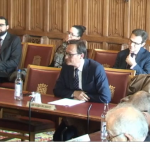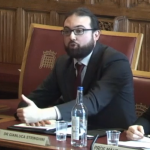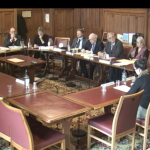- May, 15/05/2019
Damian Collins, Member of Parliament for Folkestone & Hythe, Chair of the Digital, Culture, Media, and Sport select committee, refers to our study about disturbing YouTube videos targetting young children. The Digital, Culture, Media and Sport Committee is one of the Select Committees of the British House of Commons, established in 1997. See more here - April, 09/04/2019
The Anti-Defamation League (ADL), an international Jewish non-governmental organization based in the United States, published a Congressional Testimony referencing articles reviewing the following ENCASE studies:
a) “A Quantitative Approach to Understanding Online Antisemitism”. Joel Finkelstein, Savvas Zannettou, Barry Bradlyn, Jeremy Blackburn. Arxiv, 2018.
b)”On the Origins of Memes by Means of Fringe Web Communities”. Savvas Zannettou, Tristan Caulfield, Jeremy Blackburn, Emiliano De Cristofaro, Michael Sirivianos, Gianluca Stringhini, and Guillermo Suarez-Tangil. ACM Internet Measurement Conference (IMC), 2018.Download the Congressional Testimony here.
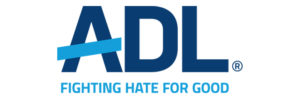
- April, 09/04/2019
ADL published a report referencing our ENCASE study:
“A Quantitative Approach to Understanding Online Antisemitism”. Joel Finkelstein, Savvas Zannettou, Barry Bradlyn, Jeremy Blackburn. Arxiv, 2018.In addition, the report references press articles that reference the following ENCASE studies:
a) “On the Origins of Memes by Means of Fringe Web Communities”. Savvas Zannettou, Tristan Caulfield, Jeremy Blackburn, Emiliano De Cristofaro, Michael Sirivianos, Gianluca Stringhini, and Guillermo Suarez-Tangil. ACM Internet Measurement Conference (IMC), 2018.
b) “What is Gab? A Bastion of Free Speech or an Alt-Right Echo Chamber?”. Savvas Zannettou, Barry Bradlyn, Emiliano De Cristofaro, Michael Sirivianos, Gianluca Stringhini, Haewoon Kwak, Jeremy Blackburn. Workshop on Computational Methods in CyberSafety, Online Harassment and Misinformation, 2018.

- March, 03/2019
The European Parliament Research Service study “Regulating disinformation with artificial intelligence”, includes numerous citations to our research
The list of the selected articles referenced by the European Parliament’s study, titled “Regulating disinformation with artificial intelligence”, includes:
a) Zannettou, S. et al. (2018) Disinformation Warfare: Understanding State-Sponsored Trolls on Twitter and Their Influence on the Web, arXiv:1801.09288v1;
b) Nilizadeh, S. et al. (2017) ‘POISED: Spotting Twitter Spam Off the Beaten Paths’, CCS;
c) Chatzakou, D. et al. (2017), ‘Mean Birds: Detecting Aggression and Bullying on Twitter’, WebSci. Hine, G. et al. (2017);
d) ‘Kek, Cucks, and God Emperor Trump: A Measurement Study of 4chan’s Politically Incorrect Forum and its Effects on the Web’, ICWSM;
e) Zannettou, S. et al. (2018) ‘Understanding Web Archiving Services and Their (Mis)Use on Social Media’, ICWSM;
f) Zannettou, S. et al. (2017) ‘The Web Centipede: Understanding How Web Communities Influence Each Other Through the Lens of Mainstream and Alternative News Sources’, IMC;
g) Zinonos, S. et al. (2018) ‘Twitter Influencers or Cheated Buyers?’, IEEE Cyber Science and Technology Congress;
h) Mariconti, E. et al. (2018) ”You Know What to Do”: Proactive Detection of YouTube Videos Targeted by Coordinated Hate Attacks’, ArXiv;
i) Zannettou, S. et al. (2018) ‘On the Origins of Memes by Means of Fringe Web Communities’, ACM Internet Measurement Conference (IMC);
j) Zannettou, S. et al. (2018) ‘The Web of False Information: Rumors, Fake News, Hoaxes, Clickbait, and Various Other Shenanigans’, ArXiv;
k) Founta, A-M. et al. (2018) ‘A Unified Deep Learning Architecture for Abuse Detection’, ArXiv;
l) Founta, A-M. et al. (2018) ‘Large Scale Crowdsourcing and Characterization of Twitter Abusive Behavior’, International AAAI Conference on Web and Social Media (ICWSM); and
m) Zannettou, S. et al. (2018) ‘The Good, the Bad and the Bait: Detecting and Characterizing Clickbait on YouTube’, 1st Deep Learning and Security Workshop, co-located with the 39th IEEE Symposium on Security and Privacy.The full report can be found here: http://www.europarl.europa.eu/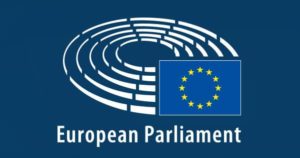
- October, 2018
ADL published a report titled: “Computational Propaganda, Jewish-Americans and the 2018 Midterms: The Amplification of Anti-Semitic Harassment Online”. The report is referencing our study “A Quantitative Approach to Understanding Online Antisemitism”. Joel Finkelstein, Savvas Zannettou, Barry Bradlyn, Jeremy Blackburn. Arxiv, 2018.
Download the report here.

- March, 16/03/2018
Article on the spread of alternative news referenced by the Canadian Security Intelligence ServiceThe Web Centipede paper by Savvas Zannettou et al. (https://dl.acm.org/citation.cfm?id=3131390) is among the few articles referenced in a report by the Canadian Security Intelligence Service titled “Who Said What? The Security Challenges of Modern Disinformation”.
The report describes the challenges posed by the modern disinformation ecosystem and it is partially motivated by the findings of the The Web Centipede article: that small “fringe” Web communities can have a surprising impact on the large mainstream social network.
The full report can be found at: https://www.canada.ca/content/dam/csis-scrs/documents/publications/disinformation_post-report_eng.pdf.

- March, 07/03/2018
Dr Gianluca Stringhini from UCL at the UK ParliamentDr Gianluca Stringhini from UCL was a witness to the International Relations Committee at the UK Parliament. He talked about his research, which focuses on cybercrime and how organized criminals and groups use technology and the Internet to perpetrate crimes. The discussion was around the threats and challenges of cyber state and non-state actors in the UK against such crimes.
Watch the recording here: http://parliamentlive.tv